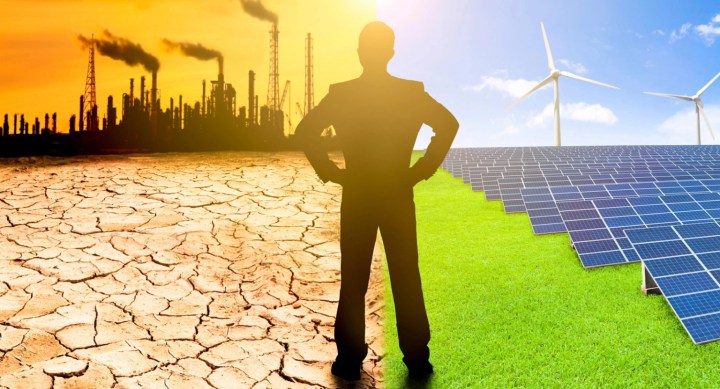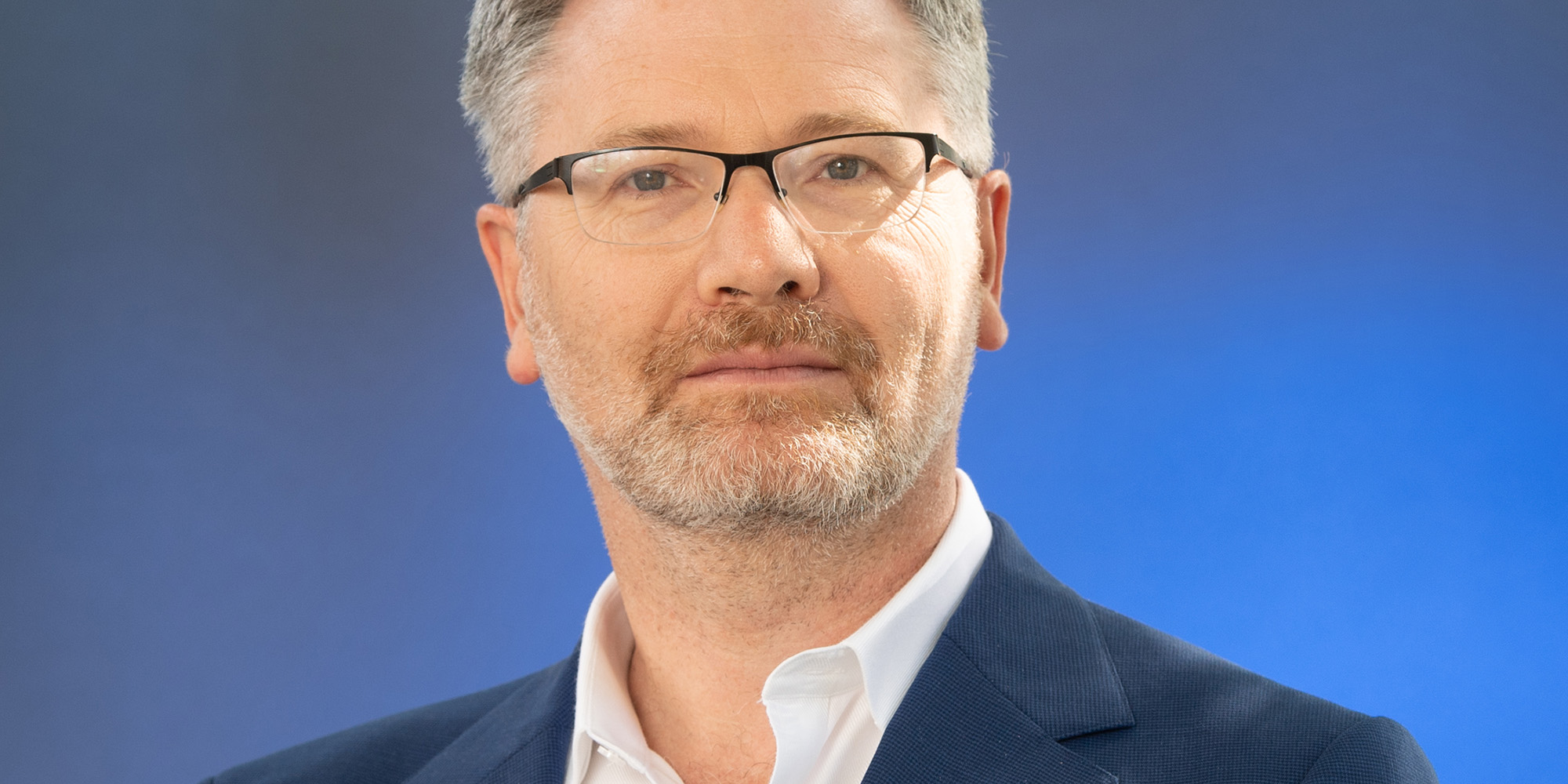ENERGY TRANSITION SOLUTIONS
Don’t underestimate local leverage for closing the funding gap for climate change in SA, says author Adam Tooze

A shift away from a coal-dependent energy mix is in the best interest of South Africa, and its natural resource advantages places the country in a perfect position to do so. But who will pay and who will profit? It’s a question renowned historian and author Adam Tooze has been mulling over. He says more overseas funding is still achievable.
“Who will pay and who will profit from the just energy transition?” asks Colombia University Department of History Professor Adam Tooze during his lecture on the climate crisis. This question forms the basis of a lot of arguments that emphasise the position of South Africa in the Just Energy Transition debate.
Read more in Daily Maverick: “What the world is learning from South Africa’s nascent Just Energy Transition Investment Plan”
For Tooze, a renowned author and historian, the answer for South Africa is simple; it’s a win-win situation, he said at a lecture titled ‘Facing the climate crisis in a world of inequality: who should pay? Who will pay?’ hosted by Wits University’s Southern Centre for Inequality Studies.
“The trade-offs to me seem to be not terribly severe… There’s a case for saying that the only way to release growth in this country is to break Eskom’s grip and the way you do that is by powering the massive rollout of renewables.
No trade-off at macro level
“Properly constructed, at the macro level, there’s no trade-off – it’s win-win. The trade-offs start at the micro level; they start with the coal mining regions, they start with the entrenched interests in coal, in labour lobby that sees its interests tied up in heavy industrial manufacturing; they start with the auto sector… and even more acutely; gas station attendants and that entire sector with people who have modest education… All those directly in the front line [of the fossil fuel industry] consist of less than a million jobs,” the professor said in a media interview.
At the end of 2021, South Africa entered into a Just Energy Transition Partnership with global-north countries such as Europe, France, Germany, the UK, and the US. The partnership, announced at global climate conference COP26 in Glasgow, Scotland, saw the partners pledge $8.5-billion in grants, and concessional and commercial loans towards aiding the country in moving away from a heavy fossil fuel-dependent energy mix.
Read more in Daily Maverick: “South Africa secures ‘watershed’ finance deal to reduce coal reliance”
However, the funding is only a small portion of the financing needed to ensure that South Africa achieves its decarbonisation and climate-resilient agenda; a mammoth task of developing electric vehicle and green hydrogen sectors, as well as shifting energy reliance to renewables – of which it needs an investment of R1.5-trillion.

British historian and Columbia University Professor Adam Tooze, on August 2018, in Edinburgh. (Photo: Roberto Ricciuti/Getty Images)
Local leverage for funding gap underestimated
Currently, the funding gap to carry out the transition stands at 44% of the country’s GDP. Tooze argues however that because the public purse is stretched, financing could come from the private sector, but that really, South Africa should be pulling strings at its moral leverage against the partners for further funding.
“South Africa underestimates its degree to exercise leverage over the Europeans and Americans. The country underestimates how much [Europe and the US] need this case to work out. South Africa is too big to fail… it is a project and experiment that enormously matters, and is a hard nut to crack because of decarbonisation, due to its big fossil fuel sector.
“[Europe and the US] have now invested in the deal, and South Africa has those countries over a barrel, and they really need this to be a good-news story and not to go down in flames… they need this part of the narrative to stick and not to pivot,” Tooze said.
Read more in Daily Maverick: “Funding a greener future – Ramaphosa outlines South Africa’s R1.5-trillion three-step energy transition plan”
A strong global narrative has been pushed that global-north countries should be providing funding in the form of grants to global-south countries, to ensure a just shift away from fossil fuel reliance. This on the basis that global-north countries are vastly responsible for the global emissions that have accelerated the climate crisis; the consequences of which will mostly be felt by developing countries.
Tooze argues however that the narrative of reparations is simply out of the question, even though the argument is a fully justified demand for restorative justice. He adds, however, that South Africa is unlike its other African counterparts in being owed “climate reparations” as the country has made significant carbon contributions, mostly attributable to a white minority – not forgetting a coal-reliant energy system.
Although the country is the continent’s biggest emissions contributor, it’s also just as vulnerable to the effects of the climate crisis; more recently seen in floods that ran through the end of 2022 and rolled over into early 2023.
Stark climate event in 2022
A stark climate event however was the KwaZulu-Natal floods in July 2022 that raised the alarm on the reality that the country and continent will experience in the face of a changed climate.
Said Tooze: “As the climate crisis intensifies – somewhere between 2 and 3°C – life becomes very uncomfortable for hundreds of millions of people on the African continent; that is the reality. All the other trade-offs; issues around inequality, development, become much harder if we are in that world. If we can, in win-win ways, try and avoid that world; we should do that!”
______________________________
Visit Daily Maverick’s home page for more news, analysis and investigations
______________________________
A win-win scenario for South Africa is simple; shift away from a coal-reliant energy system and use moral leverage to garner more funds to do so. As to whether this will all happen in time.
Says the professor: “It’s only a matter of time in my mind before the dam breaks… will the transition be quick enough to save South Africa from the Eskom disaster, or will it be quick enough to deliver power as the South African social stress system needs, or will it be quick enough to deal with the climate transition; almost certainly not!” DM/OBP
Professor Adam Tooze holds the Shelby Cullom Davis Chair of History at Columbia University in New York and serves as Director of the European Institute. He is a renowned scholar and author of several books, including Crashed, on the financial crisis of 2008, and Shutdown: How Covid Shook the World’s Economy. In 2019, Foreign Policy magazine named him one of the top global thinkers of the decade.


















Yes, it seems that the world is willing to help us do what is absolutely necessary for us to do in terms of rapidly changing our energy mix to one dominated by renewables. And it is technically possible. In fact we could have, should have, started a just transition process years ago with re-skilling of coal miners and others in the coal sector, and the development of a vibrant renewables sector to serve the continent. We could be halfway there by now. But that required political will, as does any move in the right direction, and this is simply not there. With the new minister of electricity cozying up to Mr Mantashe in parroting the delusion of the need to stay with coal for as long as possible, and Eskom probably coming under the DMRE very soon, we are doomed. Unfortunately we will also be contributing to the dooming of the continent and the world. So we will continue to be the per capita most polluting nation on earth, Eskom will continue to evade even the weak emission standards we have set for ourselves, and Mpumalanga will continue to have some of the most polluted air on the planet. Professor Tooze rightly points out that the funders from the developed countries are desperate to help us with a just transition, but how long will they hang on while we allow the current band of deluded and dangerous fools to continue making the decisions on our energy mix. But when they eventually pull the funding maybe our new big friends Russia and China will fill the gap – just maybe?